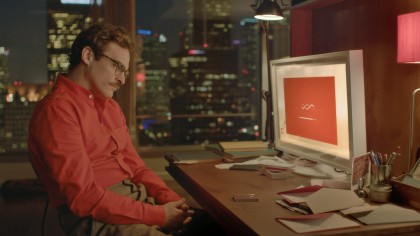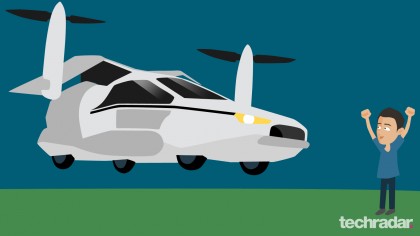Terrible tech: 11 great ideas that just don't work
Terrible tech that troubles TechRadar
Sign up for breaking news, reviews, opinion, top tech deals, and more.
You are now subscribed
Your newsletter sign-up was successful
6. Freemium apps
Apple's refusal to allow demo versions of apps and people's unwillingness to pay for content have created predictably horrible consequences as developers try to make money from their apps. Most developers are perfectly honourable, but gamers and parents are all too familiar with the minority who aren't: producers of games that are effectively unplayable without in-app purchases and kids' apps that exist solely to try and make kids spend their parents' cash.
How to fix it: get help to find the good stuff and be willing to pay for your entertainment.
7. Jetpacks

You'd think nearly 100 years after jetpacks appeared in SF stories we might all be tooling around in them today, but the problem with jetpacks is that we humans aren't exactly designed to fly. Getting us airborne requires powerful propulsion, and powerful propulsion is big, heavy and uses enormous amounts of highly flammable fuel. It'll get you up there, but it won't keep you up for long - and if it goes wrong, the consequences are of the crashy-explodey-death variety.
How to fix it: Turbine jetpacks such as the Martin jetpack are better, but that's relative: they're still jet engines strapped to people.
8. Voice recognition

If the Spike Jonze movie Her featured a real personal digital assistant such as Siri, it'd be an hour and a half of an increasingly angry man bellowing the same thing at a smartphone before smashing it to smithereens in a fit of fury. Voice recognition is much better than it used to be, but it's still a long way from being perfect - and that makes it all the more frustrating when its accuracy takes a sudden dip.
How to fix it: More money, better algorithms and more talent.
9. Electric cars outside London

Outside cities, electric cars currently face a chicken-and-egg problem: until there are sufficient EVs on the road there's little reason to install lots of charging points, but until there are lots of charging points there's little reason to shell out on an electric car. Things are improving, but as the Zap Map shows, charging points are still fairly rare outside the biggest cities and fast chargers are rarer still.
Sign up for breaking news, reviews, opinion, top tech deals, and more.
How to fix it: move to London, buy an EV with a range extender or wait until the infrastructure improves.
10. UltraViolet
If a camel is a horse designed by a committee, UltraViolet is a digital service designed by a camel - or at least it is if you want to use it on Apple kit. It doesn't play nice with iTunes (you need to use Flixster or the Sony store, and the latter doesn't support iOS), HD discs sometimes give you SD downloads, you can't download HD content to iOS devices for offline viewing and some UltraViolet movies suffer delays before arriving in the Flixster app. Other than that it's just dandy.
How to fix it: use a PC, or just buy your movies elsewhere
11. Flying cars

Here's another SF favourite, and it's another one hamstrung by the laws of physics. Making vehicles that fly is a lot tougher and considerably more expensive than making ones that roll. Even if we get the tech right, there's a more fundamental issue, which is that unless they're fully automatic flying cars would cause carnage. More than 32,000 people die in car accidents every year in the US alone, and that's on regulated roads where people can only move in two dimensions. Look at your fellow motorists the next time you're driving. Now imagine them all airborne.
How to fix it: if they ever happen, we humans won't be allowed to drive them.

Contributor
Writer, broadcaster, musician and kitchen gadget obsessive Carrie Marshall has been writing about tech since 1998, contributing sage advice and odd opinions to all kinds of magazines and websites as well as writing more than twenty books. Her latest, a love letter to music titled Small Town Joy, is on sale now. She is the singer in spectacularly obscure Glaswegian rock band Unquiet Mind.